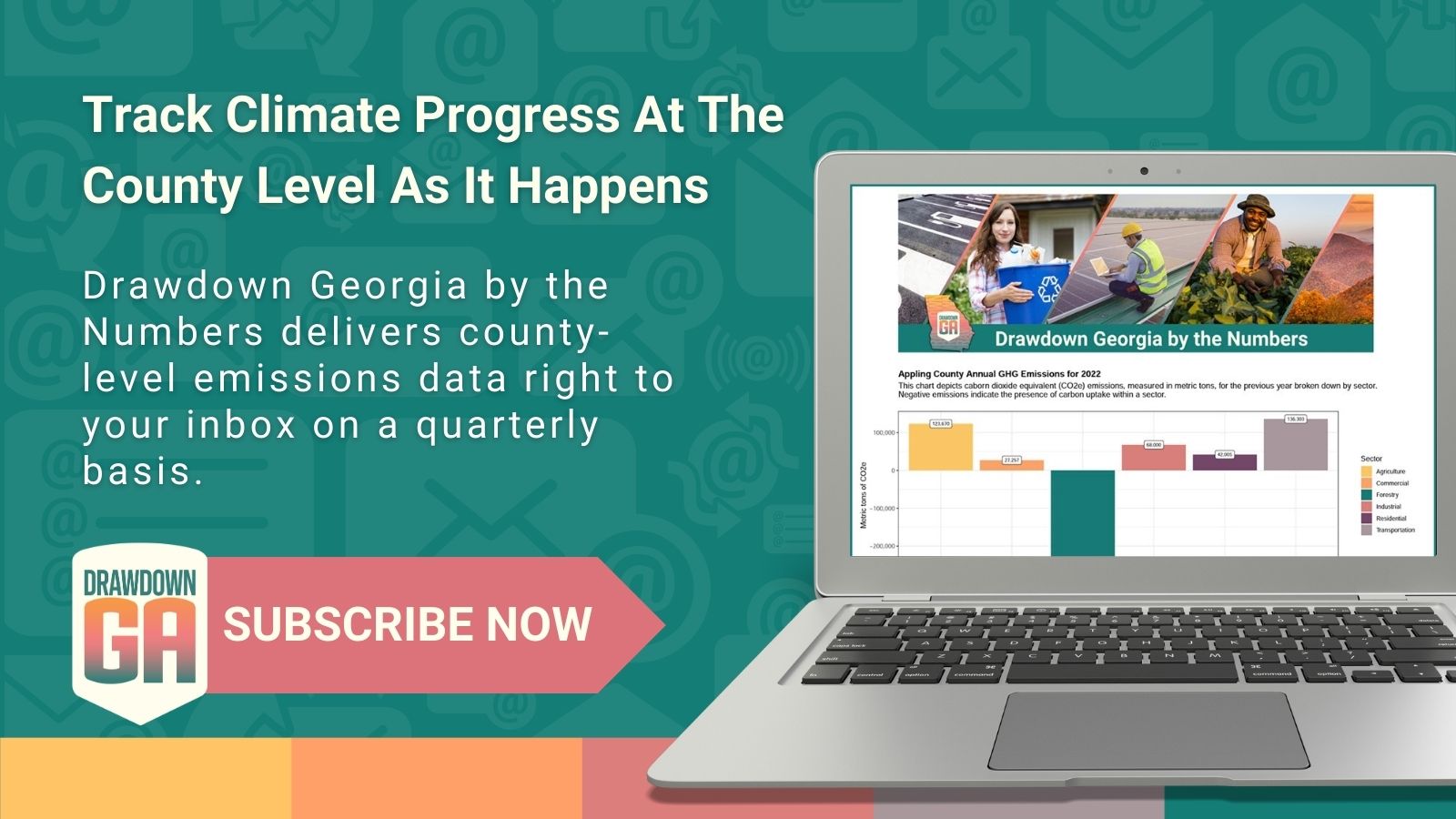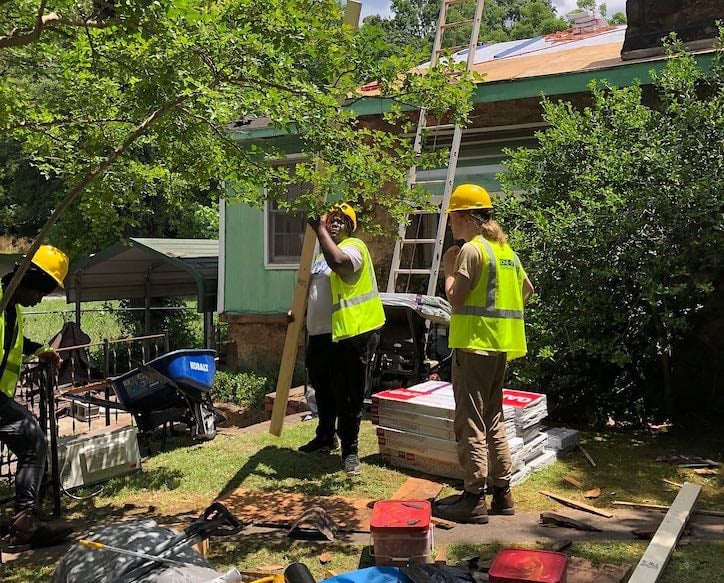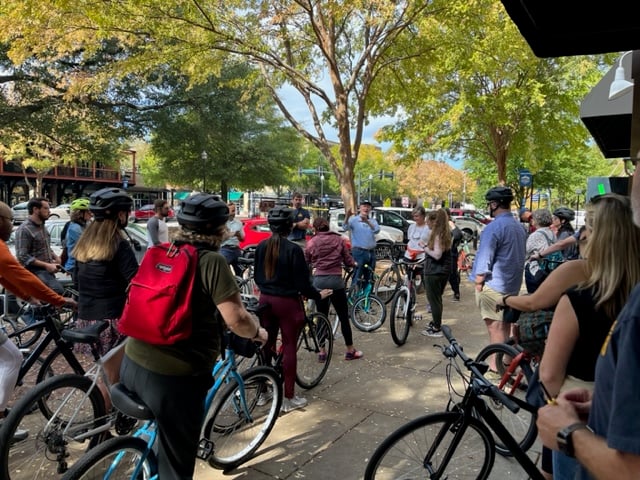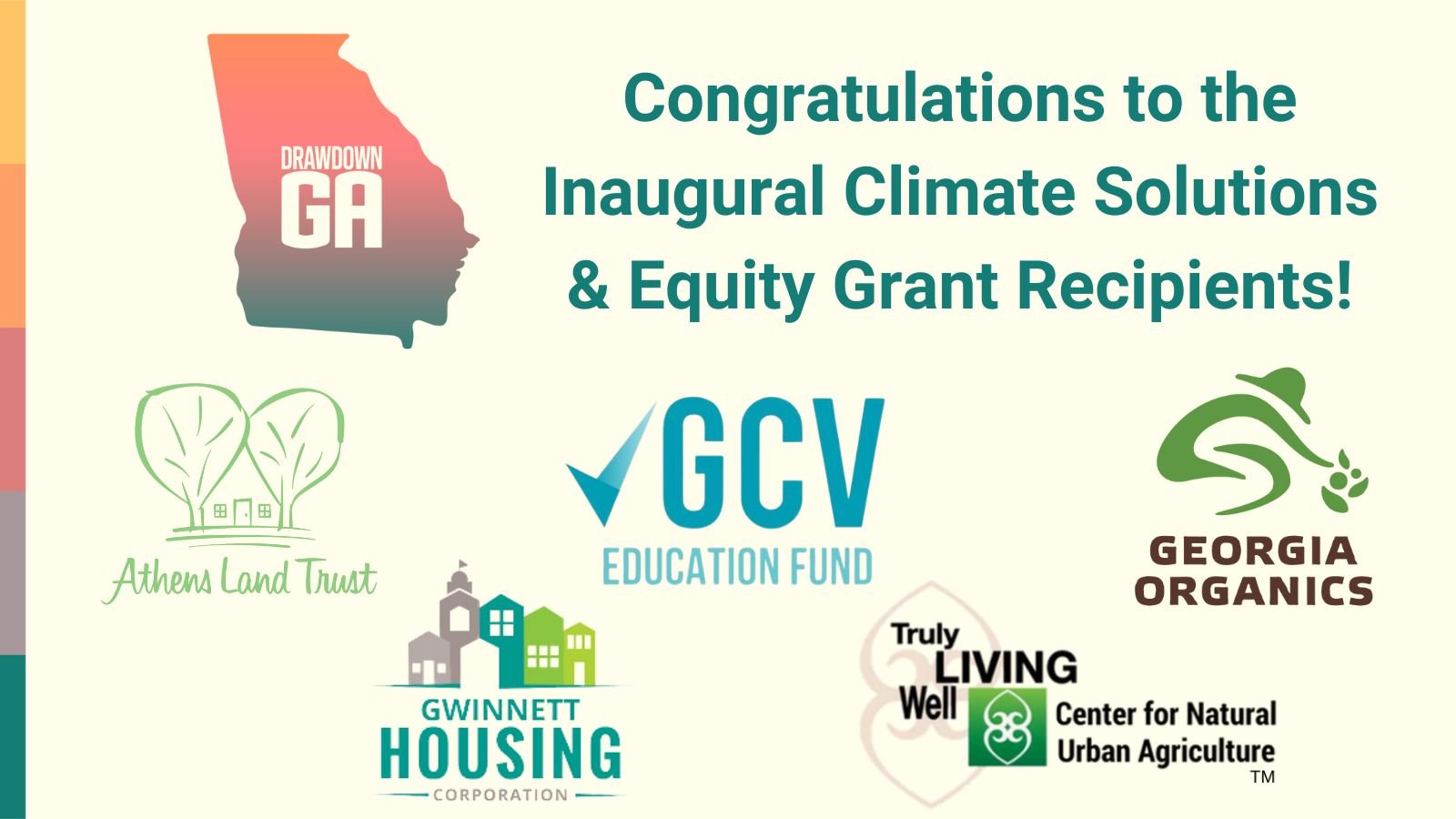 Food & Agriculture
Food & Agriculture
Have you ever considered switching to a plant-based way of eating?


 Food & Agriculture
Food & Agriculture
Have you ever considered switching to a plant-based way of eating?
 Drawdown Georgia
Drawdown Georgia

 Research
Research
Achieving net zero emissions by 2050 is an ambitious yet achievable goal. But how do we track our progress? How can we visualize reductions in emissions that are happening in our communities?
 Drawdown Georgia
Drawdown Georgia

 Food & Agriculture
Transportation
Food & Agriculture
Transportation
There are so many ways you can take action to reduce the emissions that each of us produce in our everyday life. From eating less meat to upgrading to an electric vehicle (EV) to starting a compost..
 Drawdown Georgia
Drawdown Georgia

 Buildings & Materials
Beyond Carbon
Buildings & Materials
Beyond Carbon
Drawdown Georgia researchers are keenly aware of the organic connections that can exist Beyond Carbon and between scaling climate solutions, creating jobs, and advancing racial and economic equity in..
 Drawdown Georgia
Drawdown Georgia

 People
People
Successfully implementing the Drawdown Georgia framework depends on a wide diversity of effort, and a shared commitment to lifting up everyone in our state while we draw down emissions. Chaired by..
 Drawdown Georgia
Drawdown Georgia

 Buildings & Materials
Beyond Carbon
Buildings & Materials
Beyond Carbon
Athens Land Trust is a recipient of the inaugural Drawdown Georgia Climate Solutions & Equity grants, awarded in December 2022 for their ground-breaking work advancing energy efficiency and equity in..
 Drawdown Georgia
Drawdown Georgia

 Electricity
Beyond Carbon
Electricity
Beyond Carbon
Were you aware that the Georgia Power Integrated Resource Planning (IRP) process and the decisions that the Georgia Public Service Commission (PSC) makes affect the pathway for scaling many Drawdown..
 Drawdown Georgia
Drawdown Georgia

 Food & Agriculture
Transportation
Food & Agriculture
Transportation
What New Year’s resolutions are you making for 2023? And when you are choosing your resolutions, are you keeping their impact on climate in mind? So many climate solutions can actually do double-duty..
 Drawdown Georgia
Drawdown Georgia
 Food & Agriculture
Buildings & Materials
Research
Food & Agriculture
Buildings & Materials
Research
What do you think were the top blog posts of 2022 for the Drawdown Georgia Blog?
 Drawdown Georgia
Drawdown Georgia

 Beyond Carbon
Beyond Carbon
There were ideas for reducing food waste, expanding rooftop and large-scale solar, training young workers, increasing composting, and making homes more energy efficient. And each idea benefited..
 Drawdown Georgia
Drawdown Georgia

 People
People
We’re celebrating the people in all walks of life who are a part of the Atlanta Climate Community. Project Drawdown’s Neighborhood series of documentary shorts shines a spotlight on people and..
 Drawdown Georgia
Drawdown Georgia

Have you ever considered installing rooftop solar on your home or business in our state? With Georgia’s abundant sunny days, our state is ideal for solar energy.
 Drawdown Georgia
Drawdown Georgia